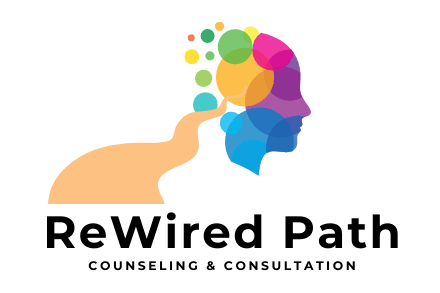The Science of Change – How Cognitive Behavioral Therapy Can Transform Your Life

Cognitive Behavioral Therapy (CBT) is one of the most widely used and effective approaches in mental health care. Known for its structured, goal-oriented methods, CBT has helped countless individuals manage their mental health challenges and improve their overall well-being. Whether you’re new to therapy or exploring different options, understanding what CBT is, how it works and its benefits can help you determine if this approach is right for your healing journey.
What is Cognitive Behavioral Therapy?
Cognitive Behavioral Therapy is a type of talk therapy that focuses on the relationship between thoughts, feelings, and behaviors. Developed in the 1960s by psychologist Aaron T. Beck, CBT is based on the idea that our thoughts influence how we feel and act. By identifying and changing negative or distorted thought patterns, CBT helps individuals develop healthier emotional responses and behaviors.
Unlike some therapeutic approaches that delve deeply into past experiences, CBT is primarily focused on the present. It’s a practical and problem-solving approach designed to provide individuals with tools to manage current challenges and prevent future difficulties.
CBT has been extensively researched and is considered a gold standard for treating a wide range of mental health issues, including:
Anxiety disorders
Depression
Post-traumatic stress disorder (PTSD)
Obsessive-compulsive disorder (OCD)
Eating disorders
Phobias
Insomnia
How Does Cognitive Behavioral Therapy Work?
Cognitive behavioral therapy typically involves working with a trained therapist in a structured, time-limited format. Sessions are collaborative, with the therapist and client working together to identify specific challenges, set goals and develop actionable strategies for improvement.
Here’s an overview of how CBT works:
Identifying Negative Thought Patterns
One of the first steps in CBT is recognizing automatic negative thoughts that contribute to distress. These thoughts may be overly critical, irrational or rooted in cognitive distortions, such as:
Catastrophizing: Expecting the worst-case scenario.
Black-and-white thinking: Viewing situations as all good or all bad.
Overgeneralization: Assuming a single negative experience reflects a broader pattern.
Challenging and Reframing Thoughts
Once negative thought patterns are identified, the therapist helps the individual evaluate their accuracy and replace them with more balanced, constructive thoughts. For example, someone who thinks, “I always fail at everything,” might learn to reframe this into, “I do my best to succeed and overcome difficult challenges.”
Behavioral Strategies
Cognitive behavioral therapy emphasizes the importance of changing behaviors that reinforce negative thought patterns. This might involve gradual exposure to feared situations, developing problem-solving skills or practicing relaxation techniques to manage stress.
Building Coping Skills
As therapy progresses, clients develop a toolkit of coping strategies they can use in real-life situations. These might include mindfulness exercises, thought-stopping techniques or planning activities that bring joy and fulfillment.
Practicing Between Sessions
CBT often involves homework assignments, such as keeping a thought journal, practicing new behaviors or applying coping skills in challenging situations. This practice helps individuals integrate what they’ve learned into their daily lives and reinforces progress made during therapy.
The Mental Health Benefits of Cognitive Behavioral Therapy
CBT offers numerous benefits for individuals seeking to improve their mental health and overall quality of life. Here are some of the key advantages:
Evidence-Based Effectiveness
Cognitive behavioral therapy has been extensively studied and shown to be highly effective for a variety of mental health conditions. Research consistently demonstrates its ability to reduce symptoms of anxiety, depression, PTSD and more.
Focus on Empowerment
CBT empowers individuals by teaching them how to identify and change unhelpful thought patterns on their own. These skills are practical and long-lasting, enabling clients to manage future challenges without relying solely on therapy.
Structured and Goal-Oriented
CBT’s structured format provides clear goals and measurable progress. This approach is particularly beneficial for individuals who prefer a focused, results-driven form of therapy.
Time-Limited and Cost-Effective
Unlike some forms of therapy that can span years, CBT is typically short-term, lasting anywhere from 8 to 20 sessions. This makes it a cost-effective option for many individuals.
Adaptability for Different Needs
Cognitive behavioral therapy can be tailored to suit individual needs and preferences. It’s effective for people of all ages, including children, adolescents and adults. It can also be adapted for group settings, online therapy and self-guided programs.
Addresses Both Thoughts and Behaviors
By targeting both cognitive (thoughts) and behavioral (actions) patterns, CBT provides a comprehensive approach to mental health care. This dual focus helps individuals achieve meaningful and sustainable changes in their lives.
Builds Long-Term Resilience
The skills learned in cognitive behavioral therapy extend far beyond the therapy sessions. By understanding the connection between thoughts, emotions and behaviors, clients are better equipped to handle future stressors and maintain their mental health over time.
Is Cognitive Behavioral Therapy Right for You?
Cognitive Behavioral Therapy can be an excellent choice for individuals looking for a structured, practical approach to improving their mental health. Whether you’re struggling with anxiety, depression or simply seeking tools to better manage life’s challenges, CBT offers a proven pathway to growth and resilience.
At ReWired Path, we specialize in providing empathetic, evidence-based care tailored to your unique needs. If you’re interested in exploring CBT or learning more about how it can benefit you, we’re here to help. Together, we can work toward a brighter, healthier future.
Contact us today and let us guide you on your journey to well-being—because your mental health matters.
